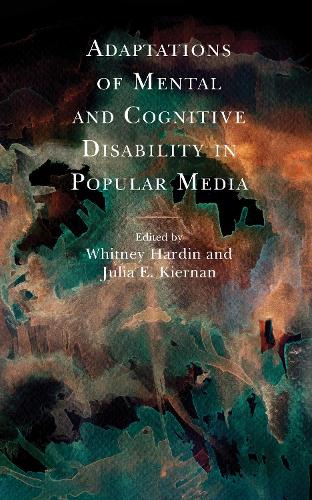
Adaptations of Mental and Cognitive Disability in Popular Media
(Hardback)
Publishing Details
Adaptations of Mental and Cognitive Disability in Popular Media
By (Author) Whitney Hardin
Edited by Julia E. Kiernan
Contributions by Whitney Hardin
Contributions by Julia E. Kiernan
Contributions by Lindsay Adams Kennedy
Contributions by Rea Amit
Contributions by Carol Donelan
Contributions by John W. Gulledge
Contributions by Martn Ponti
Contributions by Anamika Purohit
Bloomsbury Publishing PLC
Lexington Books
31st March 2022
United States
Classifications
Professional and Scholarly
Non Fiction
Media studies
Popular culture
305.9084
Physical Properties
Hardback
234
Width 162mm, Height 227mm, Spine 24mm
526g
Description
Examining representations of mental difference, this collection focuses on the ways that adaptations (including remakes, reboots, and other examples of remixed narratives) can shape and shift the social contexts and narratives we use to define mental disability. The movement of narratives across media in adaptation, or within media but across time and space in the case of remakes and reboots, is a common tactic for revitalization, allowing storytellers to breathe new life into tired narratives, remedying past inaccuracies and making them accessible and relevant for contemporary audiences. Thus, this collection argues that adaptation provides a useful tool for examining the constraints or opportunities different media impose on or afford narratives, or for measuring shifts in ideology as narratives move across cultures or through time. Further, narrative functions within this collection as a framework for examining the ways that popular media exerts rhetorical power, allowing for deeper understandings of the ways that mental disability is experienced by differently situated individuals, and revealing relationships with broader social narratives that attempt to push definitions of disability onto them.
Reviews
Depictions of mental deficiency have been ubiquitous fuel for pop culture narratives. Of course, the limited and negative characterization of mental difference has never quite worked. Stereotypical stories are consumed by neurodiverse humans. These stories also operate within metaphorical frames and genres that are shaped through their reception and repetition. This excellent collection reveals how such stories gain new meaning -- because we refuse to believe or invest in a monolithic version of mental and cognitive difference - because we refuse to easily associate this difference with evil, sadness, violence, and loss. As the collected chapters show, when we remake, reboot, and adapt texts, despite their outdated representations of mental disability, they often come out both more accessible and broader in meaning, both more representative and more open to the audience. This collection captures the energy of this critical remaking, centering the agency of disabled people.
Author Bio
Whitney Hardin is assistant professor of communication at Kettering University.
Julia E. Kiernan is assistant professor of communications at Lawrence Technological University.
